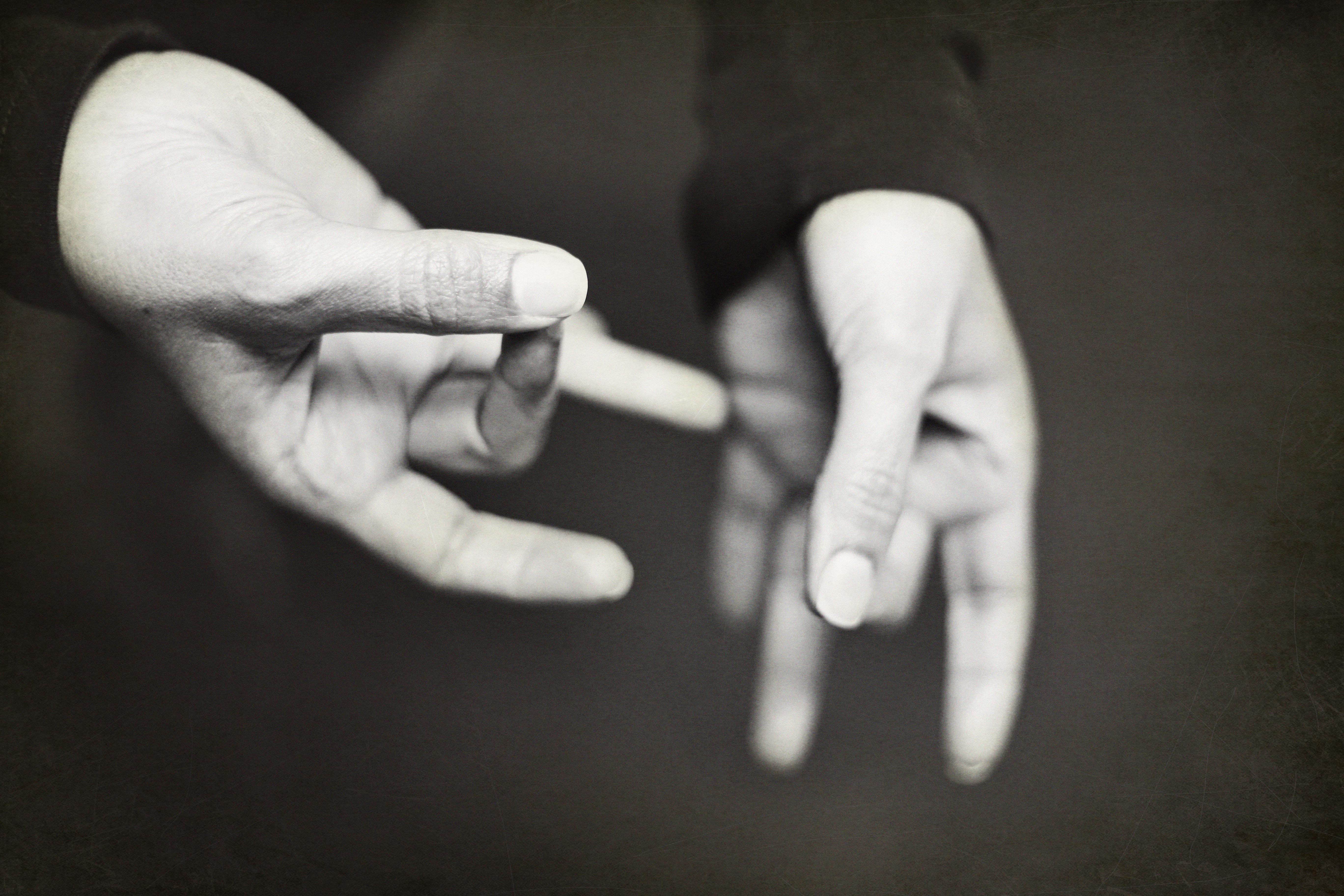
Prompt Images
1880: Congress of Milan. Teachers of deaf children voted in favor of ‘oralism’ and articulation, turning away from so-called ‘primitive’ sign language in favor of teaching the complex skill of lip-reading. The consequences of this decision were far-reaching. During the following 100 years, deaf children were forbidden to use sign language and punished for doing so by being smacked or having their hands tied behind their backs. These children were effectively banned from communicating with each other.
Even though BSL is now recognized as an official language, stigma and mythology around sign language still exists today.
They plastered the walls with giant mouths. Grotesque manifestations of lips and tongue and teeth screamed into the space: the letter el pantomimed by a fat tongue tapping the roof of an open maw, teeth sparkling in their whiteness, lips shining scarlet. There were no faces, just mouths. Facial expressions were distracting, just like our hands. They tied our hands behind our backs to remove temptation. How would we ever learn if we persisted with all that gormless waving around? How could we ever hope to be normal if we didn’t try?
I tried. I was a good girl.
I pickled all of Peter’s peppers and sang sea shanties at the sea shore until my face went blue with the effort of my trying. When my hands were untied, I sat on them, like they told me to, and en-unc-i-a-ted, stretching my face wide, slotting my tongue behind my teeth to better form the words.
Let, lie, love, lose, lonely.
Some of the others were not good girls. They didn’t sit on their hands, they twisted them into shapes which begged and mocked and laughed and swore. They squeezed their lips together, sucked cheeks in, spat, resisted right up until their hearts weren’t in it anymore and they sat sullen, listing vowels, their mouths rounding with the sounds.
Oh, woe, low, no, no, no.
None of it mattered in the end: the good, the bad, the ugly. Every time we spoke they nodded, smiled, but never with their eyes. Their eyes crinkled, skittered slyly left to right, searching for the exit, and end to this penance, this thankless task of making silken sounds from silent sows. I raised my voice to better show my trying:
Pat, put, pit, pity. Pitiful. Pity’s sake.
They gave me a pen, placed headphones on my ears, encouraged me to write. I listened to the swishing of the sea and wrote out nonsense—all the words I could not hear—and handed them the paper. They frowned, and shook their heads. Not trying. Not trying hard enough.
At night, we’d swap stories, fingers dancing by candlelight, each shape a stitch in a comfort blanket of conversations, where words soared and sang and soothed us to sleep. These were the stories that held us, calmed us, made us strong; the stories that lit the spark that blossomed to fire which ran roughshod through our veins until the day we fought to let our language fly.
The giant mouths leered at us from every angle. Master Amman set the metronome, gestured for us to stand. We stood, lips pursed, began:
with, which, when, why, why, why, why.
Our feet began to stamp in rhythm, we mirrored the mouths: stretching grins wide, flicking tongues to teeth to lips and back again as spittle flew across the room. Master Amman raised his voice, louder, louder, to no avail. We watched his mouth mirror the mouths on the wall: grotesque, unfettered, unrefined. His face grew red, his Adam’s apple bobbed up, down, up, down; we nodded in time, increased the beat and took our stomping from desk to door, slipped through the knots and let the rhythm scatter as we swirled onto the playground concrete, raising hearts and hands towards the sky, fashioning figures and forms for letters and language and talking, teasing, laughing, lapping up the buzz of all the things we had to share.
The mouths gaped down through the window: open, empty, silent as the grave.



